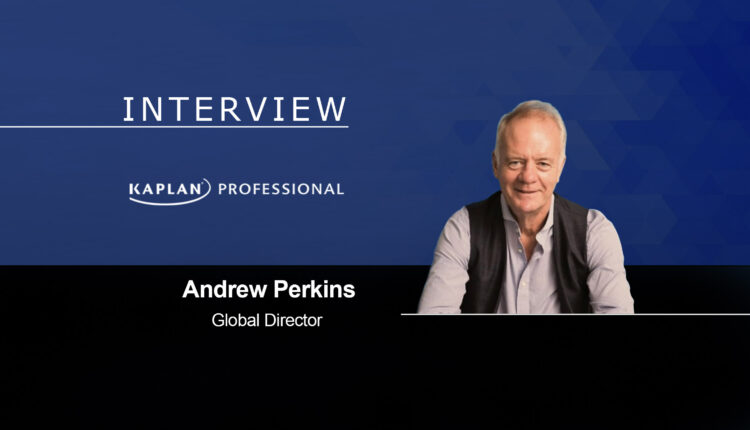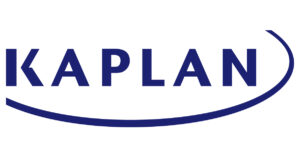Over the years, it’s not just workplace cultures and trends in tech that have shifted to suit more hybrid, flexible routines, even corporate learning and employee upskilling initiatives are being remodelled based on current business flows and challenges; Andrew Perkins, Global Director, Kaplan Performance Academy discusses these top shifts:
______
Tell us a little about yourself Andrew…we’d love to know more about Kaplan Performance Academy …
I am the global director of Kaplan Performance Academy. KPA is a digital learning environment that combines assessment, learning, and coaching. It’s unique – at least at the moment! – in being able to offer all three on a single platform to drive the transfer of learning into the workplace to make a lasting difference. This allows our clients to choreograph how these key elements are used – we can use assessment to personalise the learning content, deliver virtual live group sessions, workplace applications, and provide coaching to support the learning and the learner. In essence we offer a means to connect and share learning across a business quickly and effectively. And because all this is done through the platform we can track progress and cost to investment in real time.
HR Technology: Preventing The Scare Of Candidate Ghosting
How have you seen business and HR leaders change their approach to employee reskilling, upskilling and learning during the Covid-19 pandemic?
The most obvious change we see during the pandemic is the shift to digital learning and away from face-to-face workshops. This happened practically overnight. Many of our clients were sceptical that online learning could be as effective as the traditional classroom sessions they’d been used to.
But the experience made all us in learning re-evaluate and reimagine the role that learning plays. And I think what is coming out of that is a sense of how digital learning can be used to connect and support colleagues, as well as ‘deliver’ content to them. And, as other events in 2020 showed us, we need to be able to embrace diversity in all its forms. Learning is the perfect vehicle to enable inclusivity if used wisely.
What are some of the ways in which you feel business leaders in the tech market need to re-establish stronger learning and development initiatives, especially for new entrants onto the team?
I think what we all need to grasp is that learning much more than a content delivery system. Let me explain. Digital learning is too often designed around the effective communication of information.
The content is sequenced logically, we move through it in a directed fashion, there are regular ‘knowledge checks’ to ensure we can recall the key elements of the content. While this approach may work for some subjects, it often fails to engage us – we soon work out the ‘pattern’ that is being presented and start skipping content – and rarely inspires us. And it fails to inspire because it lacks the human need to feel supported and connected to others, to share meaning and purpose. This is why we use coaches, mentors and subject matter experts so extensively: not only to assist in the reflection, consolidation and application of what’s been learnt – the transfer of learning – but to be an important point of personal connection and support too. We’ve known the power of coaching for some time; what has hindered us from using it more has been the cost. Digital gives us the opportunity to make one-to-one support more available, more widely.
For a new entrant or hire using digital learning as a social connector will be essential. They may need to get to know and trust peers, managers and other stakeholders who they may never, or rarely, meet in person.
Can you talk about some of the biggest challenges that small – medium companies face when it comes to employee skilling initiatives? A few best practices as well for them to overcome this?
Although, of course, the pandemic changed so much, the basic challenge of a small to medium company remains the same: how to equip their people in new skills and behaviors quickly and affordably. They need to be able to target and tailor the training to those who need it most, in the area they need. Pre-assessments are essential if we are to avoid ‘sheep dipping’ where everyone gets all the training whether they need it or not. Traditional ‘training needs analysis’ are useful but slow and expensive. There are digital self-assessments and surveys that can offer real time data on which to make better informed decisions around your training spend.
HR Technology: TecHRseries Interview With Brandon DeCaro, Sales Director, Aon
As HR trends shift and today’s workforce adapts to a new normal where hybrid work cultures and learning on the go is critical to development – how do you think employees can themselves stay updated and stay ahead to ensure better growth and career potential?
I see a changed role for learning. One that sees learning as much more than a delivery system for content. One that uses learning as a powerful enabler of shared experience and common purpose – teams that train together thrive together.
Learning experiences should be a key element in the new blended workplace, providing the connections between managers and employees, between peers, across organisational silos. And we have the technology to choreograph the digital and physical environment: to create a network of learning experiences and resources, coaches and mentors, role models and peer collaborations, on-the-job projects and applications.
There is a part of me that hopes terms like ‘blended learning’, and perhaps even ‘learning’ itself, drop out of the corporate vocabulary. Not because they’re not valuable in themselves; but because connecting people, developing new skills, and sharing practical insights is simply part of how we do business.
Can you talk about some of the biggest brands today that boast of strong learning and development policies?
We work with a range of clients in different sectors that really embody the concept of the learning organization. And that’s not just about having well-thought out learning strategies and well-staffed learning departments, it’s mostly about an ethos – of seeing learning as a means to create shared purpose, as a vehicle to engage and communicate with the workforce as well as to upskill them.
A few of your biggest takeaways and tips on working effectively from anywhere….and adjusting to the new normal in 2021…
Remote working – or at least how it has been too often practiced this year – has taken its toll on all of us. ‘Zoom fatigued’, exhausted by attempts to multi-task: I don’t think I am alone in feeling pretty frayed at the edges at the end of most days.
And as well as the obvious wellbeing issues this raises, it has a deleterious effect on the quality of our decision making. Research shows very clearly that when we are depleted like this we are more likely to make poor decisions, find it harder to concentrate and to control our emotions.
HR Technology: TecHRseries Interview With Jennifer Mitchell, Head Of People At NetBase Quid
I found it essential to practice healthy routines: to plan my day, to plan and take breaks, to get outside, if I could, to eat well and to exercise. At times like these need to look after ourselves and each other. These are the building blocks of resilience, mental toughness and well being
Kaplan Performance Academy is Kaplan’s digital learning environment that delivers a powerful combination of asynchronous and live online learning, coaching, and assessment to create a holistic developmental experience. KPA features a global network of accredited coaches, mentors, and subject matter experts to support individuals in their professional development, creating business impact to make a sustainable difference in the workplace.
Andrew is Global Director of Kaplan Performance Academy. Andrew is an advocate of the democratization of learning – providing greater access to learning to more people – allied to better learning governance – the ability to track progress and manage costs – through large-scale L&D projects. After spending 10 years rebuilding and leading a global leadership development business, Andy re-joined Kaplan to head up the Kaplan’s Leadership and Professional Development unit in January 2015. He is the former CEO of an FTSE training company and has over thirty years of commercial experience in building and leading businesses.
There’s A lot That will Inspire New Trends in B2B Sales and Marketing, Catch more from the Experts:


